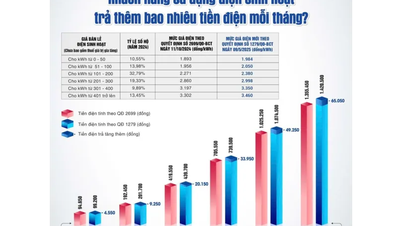- About the School of Interdisciplinary Sciences and Arts
- Tuition Fees of the School of Interdisciplinary Sciences and Arts for the 2025 - 2026 Academic Year
- Tuition Fees of the School of Interdisciplinary Sciences and Arts for the 2024 - 2025 Academic Year
- Full-time undergraduate tuition
- Postgraduate tuition fees
- Forms and policies of tuition support at the School of Interdisciplinary Sciences and Arts
About the School of Interdisciplinary Sciences and Arts
| Information | Detail |
| School name | School of Interdisciplinary Sciences and Arts – Vietnam National University, Hanoi |
| Abbreviation | VNU-SIS |
| English name | VNU School of Interdisciplinary Sciences and Arts – VNU-SIS |
| School code | QHK |
| Address | Building G7, Vietnam National University, Hanoi, 144 Xuan Thuy, Cau Giay, Hanoi |
| Website | https://sis.vnu.edu.vn/ |
| Facebook Fanpage | https://www.facebook.com/tuyensinhvnusis |
.png)
Tuition Fees of the School of Interdisciplinary Sciences and Arts for the 2025 - 2026 Academic Year
Currently, the tuition fee information of the School of Interdisciplinary Sciences and Arts for the 2025-2026 academic year has not been officially announced. We will promptly update as soon as the school makes a specific announcement. In the meantime, you can refer to the tuition fee for the 2024-2025 academic year mentioned in the article for an overview.
Tuition Fees of the School of Interdisciplinary Sciences and Arts for the 2024 - 2025 Academic Year
Full-time undergraduate tuition fees
According to the 2024-2025 Enrollment Plan, tuition fees at the School of Interdisciplinary Sciences and Arts - VNU range from 27 million VND to 28 million VND/school year/student (depending on the major).
Specifically as follows:
| Field of study | Total credits | Tuition/month (VND) | Tuition/credit (VND) | Industry |
| Brand Management | 138 | 2,820,000 | 817,000 | III |
| Heritage Resource Management | 142 | 2,820,000 | 794,000 | III |
| Entertainment and Event Management | 143 | 2,820,000 | 788,000 | III |
| Smart and Sustainable Urban Management | 144 | 2,820,000 | 783,000 | III |
| Creative Design | 148 | 2,700,000 | 729,000 | II |
Postgraduate tuition fees
In addition, according to the Project, the tuition fees for 2 postgraduate levels are also announced by the school:
| Level of education | Industry | Tuition/month (VND) |
| Master | IV | 2,430,000 |
| Dr. | IV | 4,050,000 |
Forms and policies of tuition support at the School of Interdisciplinary Sciences and Arts
At the School of Interdisciplinary Sciences and Arts - Vietnam National University, Hanoi, tuition fees are calculated based on the number of credits that students register for each semester. The method of calculating tuition fees by credits allows students to be flexible in choosing their study load and adjusting their study costs according to their personal needs. Each credit will have a specific tuition fee, and the total tuition fee for a semester will be calculated by multiplying the number of registered credits by the tuition fee of each credit. For example, if a credit has a tuition fee of 1,000,000 VND and a student registers for 15 credits in a semester, the total tuition fee will be 15,000,000 VND. This method allows students to easily predict their study costs and manage their personal finances effectively.
Factors affecting tuition fees:
+ Field of study: Tuition fees at the School of Interdisciplinary Sciences and Arts vary significantly between fields of study. Fields of study in the fields of science, technology, art, and design all have separate tuition fees, reflecting the investment in facilities, equipment, and teaching quality of each field. For example, art fields may have higher tuition fees due to specific equipment and facilities requirements, while interdisciplinary science fields have different tuition fees appropriate to the research and training characteristics of that field.
+ Training program: Training programs also affect tuition fees. General programs often have lower tuition fees than international joint programs or graduate programs. General programs provide basic and advanced courses according to the school's standards, with tuition fees set at a common level. Meanwhile, international joint programs, which may include cooperation with foreign educational institutions, have higher tuition fees to cover the costs associated with international programs and advanced learning services. Graduate programs, with higher academic and research requirements, also have higher tuition fees to reflect the quality of training and investment in research.
+ Scholarships: The College of Interdisciplinary Sciences and Arts offers a variety of scholarships to assist students in alleviating their financial burden. Scholarships include merit-based scholarships, scholarships for students with difficult circumstances, and scholarships from partner organizations or businesses. Merit-based scholarships are often awarded to students with excellent academic results, to encourage them to maintain high achievements. Scholarships for students with difficult circumstances provide financial support for students with income difficulties or financial problems. Scholarships from partner organizations and businesses can be based on specific criteria such as field of study or research needs, providing students with additional opportunities to receive financial support during their studies.
General features of tuition fees at the College of Interdisciplinary Sciences and Arts include the credit-based tuition system, the differences in tuition fees between majors and training programs, and the types of financial aid scholarships. Understanding these factors helps students and parents plan their finances effectively and choose the right program of study according to their needs and financial capabilities.
Source: https://baoquangnam.vn/hoc-phi-truong-khoa-hoc-lien-nganh-va-nghe-thuat-nam-2025-2026-3153430.html




![[Photo] General Secretary To Lam arrives in Minsk, begins state visit to Belarus](https://vphoto.vietnam.vn/thumb/1200x675/vietnam/resource/IMAGE/2025/5/11/76602f587468437f8b5b7104495f444d)

![[Photo] General Secretary To Lam concludes visit to Russia, departs for Belarus](https://vphoto.vietnam.vn/thumb/1200x675/vietnam/resource/IMAGE/2025/5/11/0acf1081a95e4b1d9886c67fdafd95ed)
![[Photo] General Secretary To Lam meets and expresses gratitude to Vietnam's Belarusian friends](https://vphoto.vietnam.vn/thumb/1200x675/vietnam/resource/IMAGE/2025/5/11/c515ee2054c54a87aa8a7cb520f2fa6e)
















![[Photo] National Assembly Chairman Tran Thanh Man attends the Party Congress of the Committee for Culture and Social Affairs](https://vphoto.vietnam.vn/thumb/1200x675/vietnam/resource/IMAGE/2025/5/11/f5ed02beb9404bca998a08b34ef255a6)






























































Comment (0)